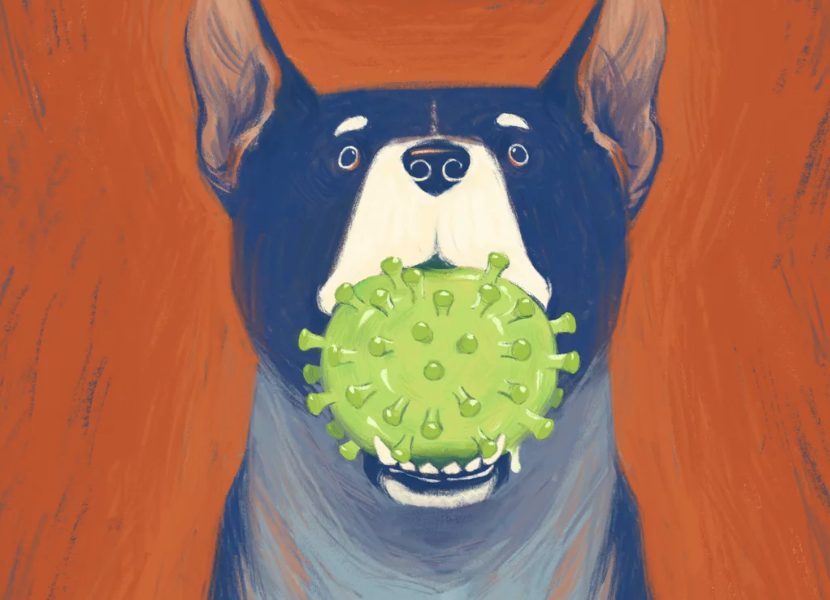Dogs experimentally infected with the SARS-CoV-2 Delta variant but not showing neurologic or respiratory signs of COVID-19 had evidence of degenerative brain disease on necropsy.
The study, led by Konkuk University researchers in South Korea, was published late last week in Emerging Infectious Diseases. The research team intranasally infected six female beagle dogs with the SARS-CoV-2 Delta virus. The six dogs shared cages with six dogs that weren’t experimentally infected. Three uninfected dogs inoculated with a placebo served as controls.
The investigators obtained nose-throat, mouth-throat, fecal swabs, and blood samples from the dogs at 10 different time points. At 10, 12, 14, 38, 40, and 42 days postinfection, one infected and one contact dog were euthanized for necropsy.
Viral DNA found in brain only early in infection
SARS-CoV-2 was detected in a low percentage of nose-throat and mouth-throat swabs in infected and contact dogs. “Remarkably, we found that the viral titers were higher in the nasal and oral mucosa of dogs in the contact group than in those in the infection group,” the authors wrote. “That finding could be attributed to the role of the nasal and oral cavities as routes of virus entry for the contact group, resulting in higher replication of the virus at these entry points.”
In the early stages of infection, dogs in the contact group showed more severe inflammatory responses in the trachea and bronchioles than were seen in the experimentally infected dogs, which the authors said is consistent with previous studies showing that contact transmission can lead to higher viral concentrations and faster onset of pathologic changes in the upper respiratory tract.
Antibodies were detected in the blood of infected dogs as early as 4 days postinfection. No significant changes in body weight or temperature were observed, and none of the dogs showed neurologic or respiratory signs of COVID-19.
